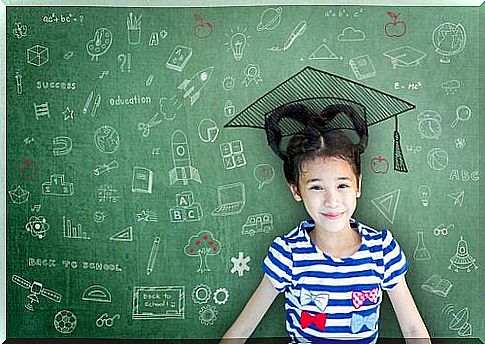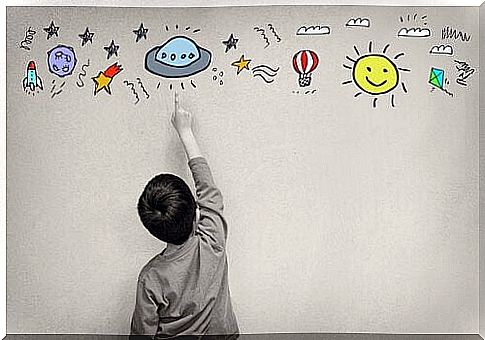Academic Performance And Self-concept

We have all heard about the concept of self-esteem and we know more or less what it means. However, it must be remembered that it consists in the evaluative perception of oneself, that is, it corresponds to how we evaluate ourselves. Do we know, instead, what is meant by self-concept? And what is the relationship with school performance?
Although self-concept and self-esteem are similar notions, they should not be confused. This distinction is fundamental to understanding how this psychological component affects the student’s academic performance. It is, in fact, essential to improve the quality of the education system and the way we teach children.
We can therefore say that self-concept is the set of perceptions, ideas and thoughts that an individual has about himself. That is, a fundamental part of the ego or the idea that a person has about “who he is”.
So what is the difference between self-concept and self-esteem? While the first describes only the image we have of ourselves, without evaluating it, the second consists precisely in the subjective evaluation we make of our personal characteristics.
Another way of understanding self-concept is the idea of a construct based on the relationships that a subject maintains with society and its environment. In this sense, the way we see ourselves will greatly influence the way we act in different areas of life, including education.
There are two works that have changed the study of academic achievement . One refers to Howard Gardner’s theory of multiple intelligences, and the other is Daniel Goleman’s book Emotional Intelligence , which discusses the importance of self-concept. In this article we will see how all of these ideas apply to education.

What is academic achievement?
A widely accepted definition of academic achievement refers to learning ability as the answer presented by the student. However, to study this phenomenon, it is necessary to understand the different factors that influence it.
The elements on which academic performance depends are various. Among them stand out the attitudes of the student and also his motivation. But there are other factors that shouldn’t be ignored. For example, the capacity and quality of the teacher, the educational program in which the student is immersed, the school, the family and the social environment.
However, one of the factors that most influence a person’s learning ability (and one of the least studied) is self-concept.
Relationship between self-concept and academic performance
Several researches show that there are strong relationships between self-concept and academic achievement. Well, how does the first act on the second? According to recent experiments, we can highlight some factors:
- Evaluations made by people who are close and significant to the student greatly influence how he perceives himself in his role as a student.
- Self-concept determines the academic performance of a student, since on a qualitative and quantitative level, it will affect the perception of oneself in the effort invested in learning something new and in the difficulty of the tasks that will have to face.
- Self-concept and academic achievement maintain a two-way relationship and influence each other. If either component is changed, the whole system changes until a new equilibrium is reached.

How to develop good self-concept in the student
In light of the results, it is clear that the development of a good self-concept is of vital importance for the student in order to achieve optimal academic performance. Indeed, it will become vital in various aspects of its growth and maturation. Therefore, it is important to remember the following:
- A sense of family belonging is essential. The student must observe and find understanding, interest, affection, consideration, well-being, etc. in his or her core of relationships.
- It is also important for the child to feel unique. He must feel special and unrepeatable, but he must concretely know what makes him different from others; stay humble and focus on what needs to be improved.
- The student must feel able to achieve the goals set and established. Furthermore, he will have to recognize the factors that intervene in achieving this result, in order to learn for future experiences. To do this, he will have to master his self-control, which will allow him to react better in the face of adversity.
- A safe, stable and consistent behavioral framework with the child’s life must be established. Here comes the acquisition of positive models that serve to stimulate and encourage the most important aspects for its success. This will also serve to change unwanted behaviors.
Promoting good self-concept in children is key to ensuring optimal school performance. This task involves everyone: from the student himself to the family, from educators to the rest of the members of society.









